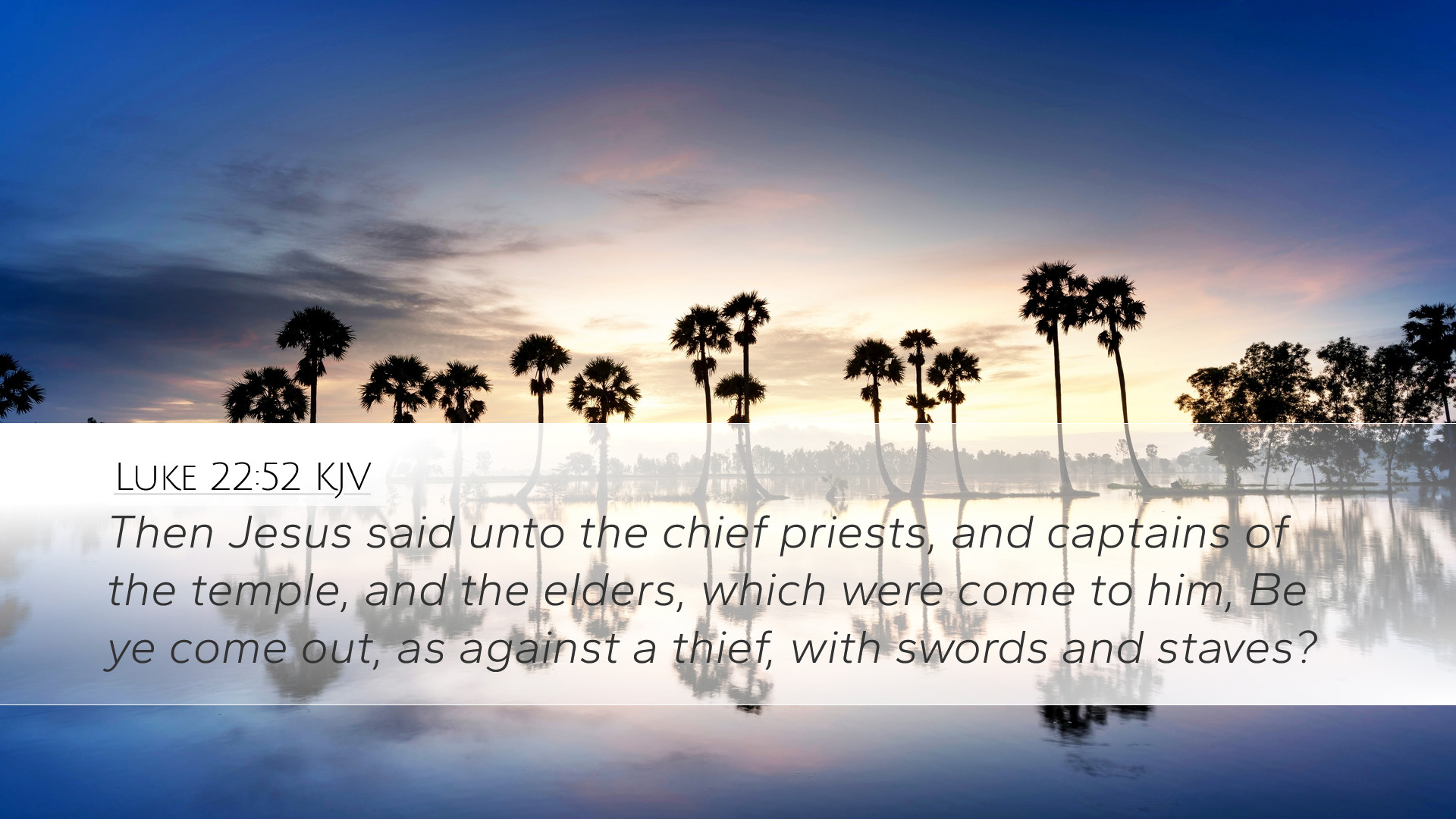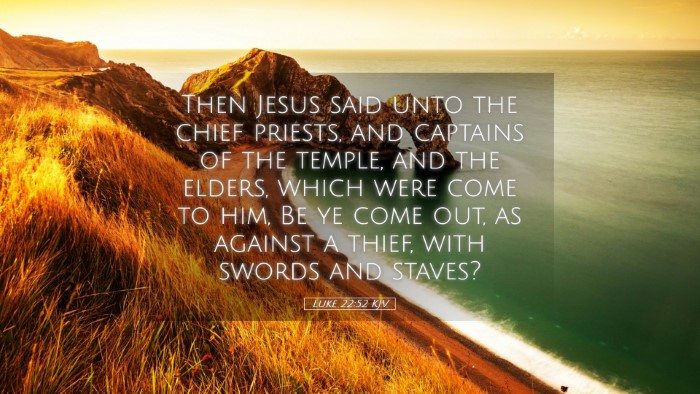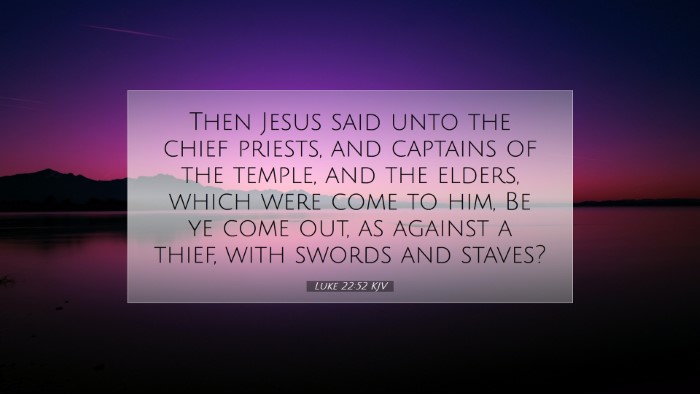Commentary on Luke 22:52
Verse: "Then Jesus said to the chief priests, the officers of the temple guard, and the elders who had come for him, 'Am I leading a rebellion, that you have come with swords and clubs?'" (Luke 22:52, NIV)
Introduction
This critical moment in the life of Christ reveals multiple layers of meaning and theological significance. As we examine the verse, it is crucial to consider the historical context, the emotional weight of the situation, and the broader implications of Jesus’ demeanor in the face of arrest.
Contextual Analysis
Public Domain Commentaries Insights:
- Matthew Henry: Henry highlights the solemnity of the moment, emphasizing that this was the fulfillment of prophecies regarding the sufferings of the Messiah. The crowd’s approach, armed and hostile, signifies the culmination of spiritual blindness among the leaders of Israel.
- Albert Barnes: Barnes explains that the chief priests and their associates had conspired against Jesus. Their approach with swords and clubs portrays their fear and misunderstanding of Jesus' mission and power. He draws attention to the overt aggression of the guards, hinting at the unjust nature of the proceedings.
- Adam Clarke: Clarke provides a historical context regarding the roles of the temple guard and the elders. Their presence armed indicates not merely an arrest, but a show of force against a perceived threat to their authority. He also notes that Jesus’ response serves as a poignant rhetorical question that challenges the legitimacy of their actions.
Thematic Exploration
This verse adeptly encapsulates themes of power, authority, and the true nature of Jesus’ kingship.
Power and Authority
In his questioning, "Am I leading a rebellion?", Jesus confronts the misperceptions held by those coming to arrest him. Instead of a revolutionary leader, He presents as the embodiment of peace and fulfillment of God’s will. Each commentator adds depth to this understanding:
- Henry: He notes that this interaction highlights Jesus' peaceful approach to His ministry, which stood in stark contrast to the violent methods of the religious authorities.
- Barnes: Barnes points out that the visible show of force reveals the insecurity of the religious leaders. Jesus questions their fears by contrasting His mission of peace with their militarized response.
- Clarke: Clarke emphasizes that Jesus’ knowledge of His impending suffering showcases His divine authority, reinforcing that the powers of the world failed to grasp the significance of His mission.
The Nature of Jesus’ Kingdom
In this moment, Jesus models the nature of His kingdom, which is not of this world. His lack of earthly weapons and His focus on spiritual truth stand out in relief against the armed guards, illustrating the disparity between earthly powers and divine authority.
Pastoral Applications
For pastors and theologians, this passage facilitates profound reflection on leadership and authority:
- Character of Leadership: True leadership mirrors Christ’s approach: marked by humility, peace, and integrity rather than aggression.
- The Call to Boldness: While Jesus faced imminent suffering, His calm demeanor calls us to courageously stand for truth in the face of opposition.
- Emphasizing the Spiritual Realm: This passage serves as a reminder to focus on spiritual realities over physical confrontations, especially in our interactions with the world.
Theological Implications
This interaction invites profound theological inquiry into the nature of Christ’s mission and the implications of His sacrificial love:
- Messiahship: Luke 22:52 reinforces the understanding of Jesus as the awaited Messiah, who came not to incite rebellion but to fulfill the Old Testament prophecies.
- Divine Sovereignty: Jesus’ questioning demonstrates His awareness of the divine plan unfolding, offering a perspective that God’s purposes transcend human actions.
- Human Sinfulness: The aggressive actions of the guards highlight the extent of human sin and the need for a savior who would confront sin’s power through His death and resurrection.
Conclusion
The words of Jesus in Luke 22:52 resonate with truth that challenges both believers and non-believers alike. The interplay of authority, the nature of Jesus, and the unfolding drama of His arrest encapsulates the heart of the Gospel message. As readers reflect on this passage, they are invited to contemplate the profound implications of Christ’s mission and the call to embody His example in their own lives.


